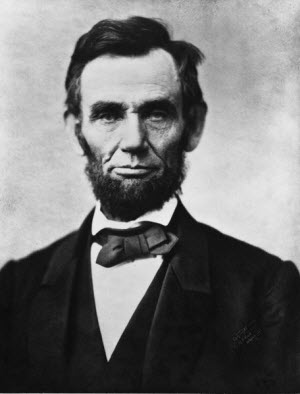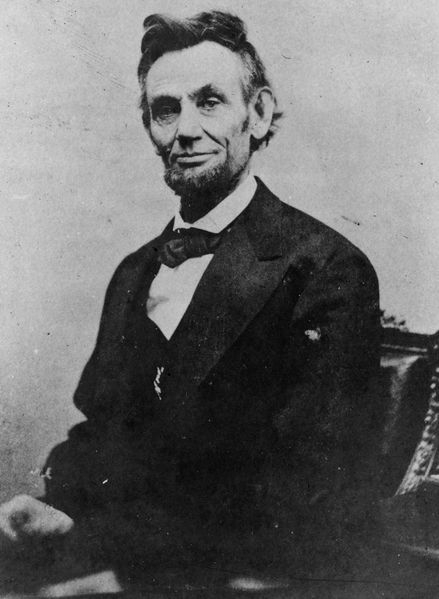FIRST NOMINATION FOR PRESIDENT.
The Republican National Convention of 1860 met in Chicago, May 16, in an immense building called the "Wigwam." The leading candidates for President were William H. Seward of New York and Abraham Lincoln of Illinois. Among others spoken of were Salmon P. Chase of Ohio and Simon Cameron of Pennsylvania.
On the first ballot for President, Mr. Seward received one hundred and seventy-three and one-half votes; Mr. Lincoln, one hundred and two votes, the others scattering. On the first ballot, Vermont had divided her vote, but on the second the chairman of the Vermont delegation announced: "Vermont casts her ten votes for the young giant of the West--Abraham Lincoln."
This was the turning point in the convention toward Mr. Lincoln's nomination. The second ballot resulted: Seward, one hundred and eighty-four and one-half; Lincoln, one hundred and eighty-one. On the third ballot, Mr. Lincoln received two hundred and thirty votes. One and one-half votes more would nominate him. Before the ballot was announced, Ohio made a change of four votes in favor of Mr. Lincoln, making him the nominee for President.
Other states tried to follow Ohio's example, but it was a long time before any of the delegates could make themselves heard. Cannons planted on top of the wigwam were roaring and booming; the large crowd in the wigwam and the immense throng outside were cheering at the top of their lungs, while bands were playing victorious airs.
When order had been restored, it was announced that on the third ballot Abraham Lincoln of Illinois had received three hundred and fifty-four votes and was nominated by the Republican party to the office of President of the United States.
Mr. Lincoln heard the news of his nomination while sitting in a newspaper office in Springfield, and hurried home to tell his wife.
As Mr. Lincoln had predicted, Judge Douglas' position on slavery in the territories lost him the support of the South, and when the Democratic convention met at Charleston, the slave-holding states forced the nomination of John C. Breckinridge. A considerable number of people who did not agree with either party nominated John Bell of Tennessee.
In the election which followed, Mr. Lincoln carried all of the free states, except New Jersey, which was divided between himself and Douglas; Breckinridge carried all the slave states, except Kentucky, Tennessee and Virginia, which went for Bell, and Missouri gave its vote to Douglas.
Abraham Lincoln | Events | People | Abraham Lincoln Quotes |
Quotations About Abraham Lincoln | Abraham Lincoln Photo Gallery | Abraham Lincoln Timeline |
Privacy Policy | About Us | Site News | Site Map |
Anecdotes and Stories About Abraham Lincoln


